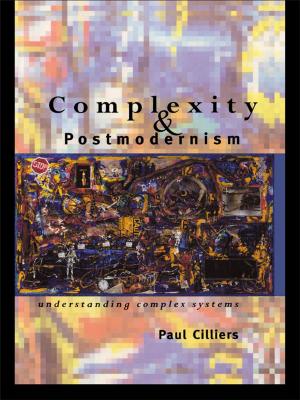Public Management and Complexity Theory
Richer Decision-Making in Public Services
Business & Finance, Industries & Professions, Industries, Management & Leadership, Management| Author: | Mary Lee Rhodes, Joanne Murphy, Jenny Muir, John A. Murray | ISBN: | 9781136899881 |
| Publisher: | Taylor and Francis | Publication: | October 4, 2010 |
| Imprint: | Routledge | Language: | English |
| Author: | Mary Lee Rhodes, Joanne Murphy, Jenny Muir, John A. Murray |
| ISBN: | 9781136899881 |
| Publisher: | Taylor and Francis |
| Publication: | October 4, 2010 |
| Imprint: | Routledge |
| Language: | English |
That public services exhibit unpredictability, novelty and, on occasion, chaos, is an observation with which even a casual observer would agree. Existing theoretical frameworks in public management fail to address these features, relying more heavily on attempts to eliminate unpredictability through increased reliance on measurable performance objectives, improved financial and human resource management techniques, decentralisation of authority and accountability and resolving principal-agent behaviour pathologies. Essentially, these are all attempts to improve the ‘steering’ capacity of public sector managers and policy makers.
By adopting a Complex Adaptive Systems (CAS) approach to public services, this book shifts the focus from developing steering techniques to identifying patterns of behaviour of the participants with the ultimate objective of increasing policy-makers’ and practitioners’ understanding of the factors that may enable more effective public service decision-making and provision. The authors apply a CAS framework to a series of case studies in public sector management to generate new insights into the issues, processes and participants in public service domains.
That public services exhibit unpredictability, novelty and, on occasion, chaos, is an observation with which even a casual observer would agree. Existing theoretical frameworks in public management fail to address these features, relying more heavily on attempts to eliminate unpredictability through increased reliance on measurable performance objectives, improved financial and human resource management techniques, decentralisation of authority and accountability and resolving principal-agent behaviour pathologies. Essentially, these are all attempts to improve the ‘steering’ capacity of public sector managers and policy makers.
By adopting a Complex Adaptive Systems (CAS) approach to public services, this book shifts the focus from developing steering techniques to identifying patterns of behaviour of the participants with the ultimate objective of increasing policy-makers’ and practitioners’ understanding of the factors that may enable more effective public service decision-making and provision. The authors apply a CAS framework to a series of case studies in public sector management to generate new insights into the issues, processes and participants in public service domains.















